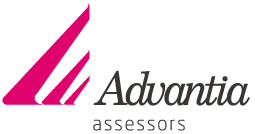The income tax campaign in Andorra began in April and you have until 30th September to file your tax return.
In this article, we tell you how personal income tax works in Andorra.
TABLE OF CONTENTS:
- 1. Income tax in Andorra
2. How much personal income tax do I pay in Andorra?
3. Who has to pay income tax?
4. Income subject to personal income tax
5. Personal income tax exemptions and allowances
6. Andorra and the United Kingdom: comparison of personal income tax
7. Double taxation treaties
8. Personal income tax in figures
1. Income tax in Andorra
The personal income tax rate is applicable to the aggregate income of individuals with fiscal residence in Andorra and who earn more than €24,000. The tax is applicable to all income derived from work, property or commercial activities, regardless of where it is generated and where the taxpayer is lovated.
The period for filing personal income tax returns is from 1st April to 30th September in the year following the year in which the tax return is filed.
In Andorra, this tax is relatively new, as it came into force in 2015.
2. How much personal income tax do I pay in Andorra?
Personal income tax in Andorra is divided into three progressive brackets only:
- Income below €24,000 is exempt from personal income tax.
- Between €24,000 and €40,000 taxpayers pay 5%.
- From €40,000 upwards, taxpayers pay 10%.
In the latter two cases, the first €24,000 is exempt from taxes. So in the case of an annual income of €30,000, the tax would be 5% of €6,000, i.e. €300.
3. Who has to pay income tax?
Individuals with fiscal residence in the country are required to file an income tax return in the following circumstances:
- When they effectively spend at least 183 days per year in Andorra.
- When the main core of their business or economic interests is directly or indirectly located within the Andorran territory.
Consult the different types of residence in Andorra.
This requirement does not apply to cross-border workers who travel every day from France or Spain to work in Andorra, and who are employed by companies with fiscal residence in Andorra. These workers will be subject to non-resident income tax and will pay a maximum of 10% on income generated in the Principality.
4. Income subject to personal income tax
Profits earned by the taxpayer are classified and quantified according to their nature and origin, as follows:
General basic income
Wages, income from rentals and economic activities.
Employment income: income derived from work, i.e. wages and salaries.
Income from property: which includes income from developing property or related rights such as rents.
Economic activities: income from business or professional activities and from tasks carried out as a director.
Savings-based income
Income from movable capital: earnings resulting from holding shares in an entity’s equity, from the transfer of capital to third parties, from capitalisation operations and from life or disability insurance. This category includes dividends and interest, among other sources.
Capital gains and losses: arising from changes in the composition of the assets. They do not include gratuitous transactions —such as inheritances and gifts— or income from the transfer of property declared for the capital gains tax on property transfers in Andorra, except when they are considered as income from economic activity.
5. Personal income tax exemptions and allowances
There are adjustments, such as those eliminating double taxation, which reduce the income tax burden. And there are also reductions for new investments and for the creation of new jobs.
Note that inheritances and gifts in Andorra are completely tax-free.
The same applies to dividends of Andorran companies, which are exempt from income tax.
6. Andorra and the United Kingdom: comparison of personal income tax
It is well known that the tax burden in Andorra is much lower than in Spain and the United Kingdom, and that makes the country an attractive place in which to live and invest. Andorran personal income tax is one of the lowest in Europe and much lower than in the United Kingdom. The main difference is that in Andorra personal income tax is only payable from €24,000 upwards, whereas in the United Kingdom it is payable from £12,571 upwards.
Another big difference is the tax base. As we have seen, the maximum income tax rate in Andorra is 10% from €40,000 and upwards. In the United Kingdom, the tax rate is 20% from £12,571 and increases by stages to 45% on incomes of more than £150,000.
In this article you can compare Andorran personal income tax, corporate income tax and VAT with the same taxes in the United Kingdom.
The lower tax burden is one of the many reasons why foreign investors choose to live and set up a business in Andorra.
7. Double taxation treaties
In Andorra there are international agreements that make it possible to avoid double taxation of income. These are called double taxation agreements (DTA), and Andorra has already signed them with ten countries. The first was signed in 2013, with France. This was followed by agreements with Spain, Luxembourg, Liechtenstein, Portugal, the United Arab Emirates, Malta and Cyprus. The last two, with San Marino and Hungary, date from 2021.
DTA apply to the following taxes:
- Personal income tax
- Corporate taxation
- Income tax for non-resident taxpayers
- Capital gains tax on property transfers
Consult the double taxation treaties in Andorra here.
8. Personal income tax in figures
In the latest income tax collection, which was in 2020, Andorra’s tax department announced that approximately 36 million euros had been collected. This figure was obtained from the voluntary tax returns made between April and September 2021, and was lower than that for 2019 (due to the pandemic) but higher than that for 2018.
By 30th September 2021, a total of 17,853 returns had been filed, of which almost 5,000 related to earned income. Of the total number of returns, 7,240 concerned amounts to be paid in, 5,666 concerned amounts to be refunded and 4,947 had a net result of zero.
In the 2020 tax returns, income from employment produced approximately 12 million euros of tax revenues, income from movable capital, 5.66 million euros, differentiated contributions for economic activities, 10.2 million euros, and fractioned payments for economic activities, 2.52 million euros.
At Advantia Assessors we are experts in providing advice about taxation, both corporate and personal.
Do not hesitate to contact us if you need help with filing your tax return in accordance with current legislation, and suited to your specific case.



